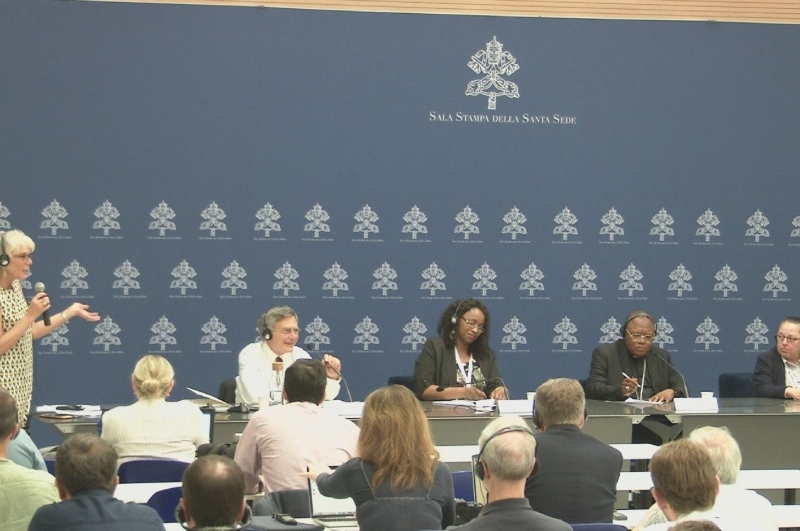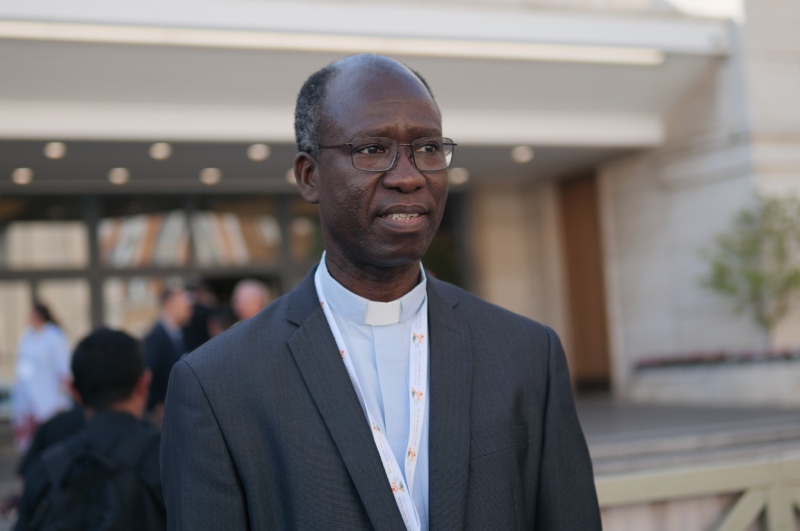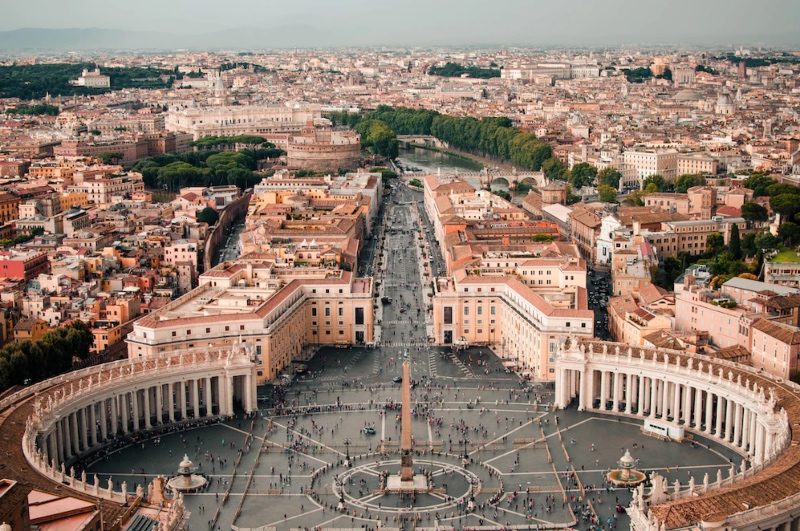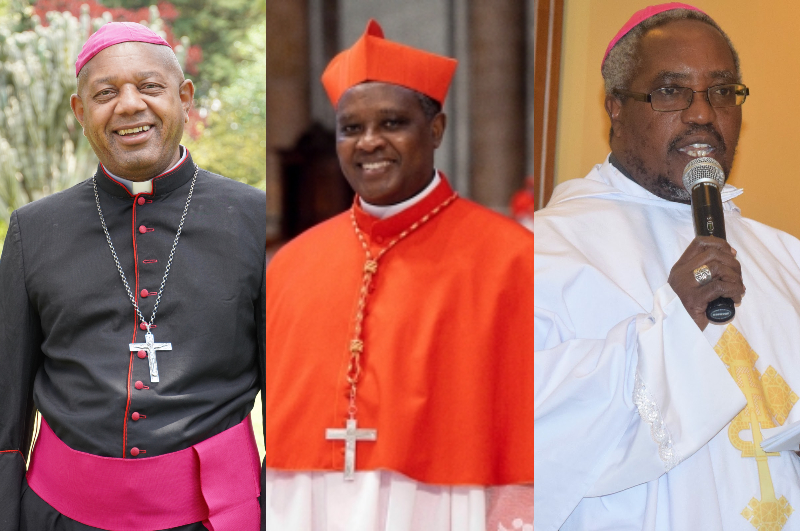

As the Church of God prepares for the 16th Ordinary General Assembly of the Synod of Bishops scheduled for 2023, some African prelates have shared their experiences of leading the first tier synodal path process which is the Diocesan phase and acknowledged translating the Synod Preparatory document into local language and also invited members of other religions to be part of the journey.
In a video clip published Tuesday, January 18, by the African Synodality Initiative (ASI), a partnership between two Church regional bodies: Jesuit Conference of Africa and Madagascar (JCAM) and the Association of Member Episcopal Conferences in Eastern Africa (AMECEA), three African bishops who have shed light on the synodal journey. They comprise Antoine Cardinal Kambanda of Kigali Archdiocese, Rwanda, Archbishop Jude Thaddaeus Ruwa’ichi of Dar-es-Salaam, Tanzania and Bishop Willybard Kitogho Lagho of Malindi Diocese, Kenya.
To reach out to the faithful within the Diocese and enlighten them about the two-year process of Synod on Synodality, “We appointed the lead person and the lead team for the Diocese who have come up with a translation of the preparatory document in Swahili language,” Bishop Lagho said referencing a document from the Vatican in English language that was availed last year by the General Secretariat of the Synod to guide the Local Churches, in journeying together.
According to Rt. Rev. Lagho, “Other dioceses are already asking for the translated version,” so that everybody especially those who understand only the local language can be in a position to know what is required of them concerning the synod.
Besides translating the preparatory document, Bishop Lagho who is the Chairman of the Commission of Ecumenism and Inter-religious Dialogue at the Kenya Conference of Catholic Bishops (KCCB), said that the bishops under the Metropolitan See of Mombasa had a pre-synodal preparation meeting where they brainstormed on how to reach the Christians at grass root level during the process.
Sharing on how the Christian faithful and members of other religions have been involved in the forthcoming synod, Cardinal Kambanda of Rwanda’s Kigali Archdiocese said they are open to welcome everyone.
“We have organized different movements including going to market places, bars, in the streets and in different social places even vising traditional healers and diviners as well as going out to other Christian denominations and religious communities like the Muslims,” the Cardinal said adding that their intent is “to listen to everyone.”
In the clip shared by ASI whose aim is to provide resources that will enable the local churches in Africa engage fruitfully and constructively in the synodal process, Cardinal Kambanda compares Pope’s request of listening and being obedient to the Spirit who will inspire the process to the experience during the special Diocesan synod on the “ethnic conflict in Rwanda.”
“We had an experience of listening to the sufferings of the people, we had proposals for mutual understanding and sought solution for reconciliation and peace so that we could match together,” Cardinal Kambanda continued, “In this we were guided by the Spirit in prayer and enlightened by the Word of God from the Small Christian Community up to the wider community of the Diocese.”
On his part, the Local Ordinary of the Catholic Archdiocese of Dar-es-Salaam, Tanzania Archbishop Ruwa’ichi, disclosed that “the faithful are very enthusiastic about the synod and have received the message as a moment of Grace for the Church and are more than willing to participate in the synodal process which they see as an opportunity to enrich and re-activate the evangelizing power of the Church.”
He underscores that the people of God are listening to the Holy Spirit “by reciting the Synodal prayer, as well as relating and discussing together about the synodal process and listening to the Holy Spirit who is the supreme mover of the synod.”
The Archbishop has disclosed that the Church can borrow a leaf on how to participate in the synodal process from the model of Small Christian Community (SCC) that was established by the Association of Member Episcopal Conferences in Eastern Africa (AMECEA) region with emphasis on “personal relationships, togetherness, family bonds, solidarity, Christian belonging, sharing, working and celebrating together.”
“The Church in Africa has to keep these realities alive and vibrant so they may enrich the Church and make her an evangelizing force in the modern society,” says Archbishop Ruwa’ichi OFM Cap.
The three prelates urge fellow bishops to take seriously the synod process and listen carefully to what the people of God are saying as they govern the Church and guide the people in holiness to God.
Besides, they ask the Church leaders to embrace the experience during the synod process, “for internal renewal of the local churches, and be the main consumers of the results of the synod.”
This article was done by Sr. Jecinter Antoinette Okoth, FSSA, for AMECEA. The African Synodality Initiative is a partnership between the Jesuit Conference of Africa and Madagascar and the Association of Member Episcopal Conferences in Eastern Africa.
Related Articles
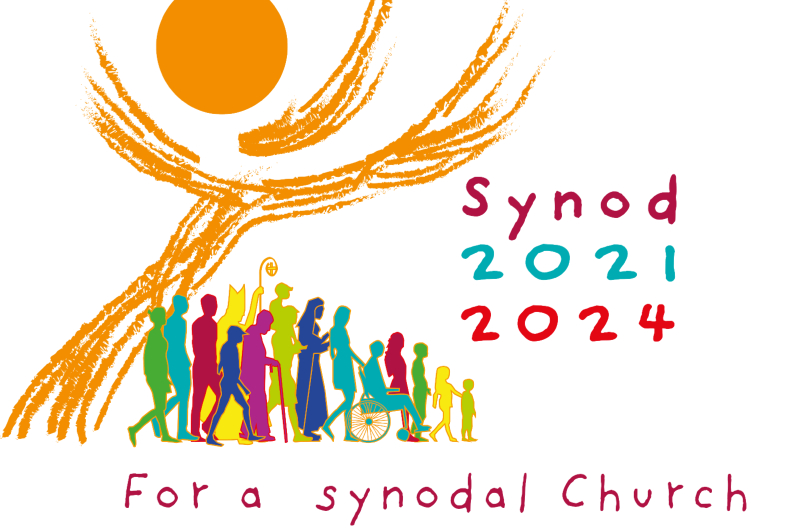
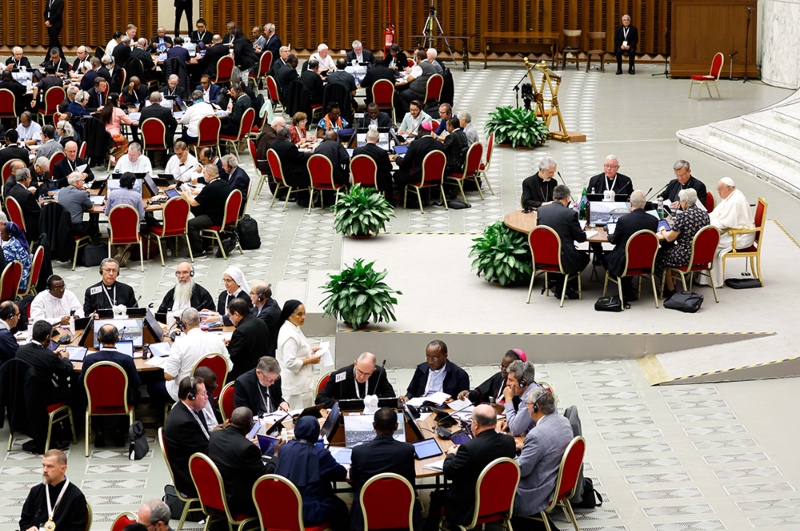
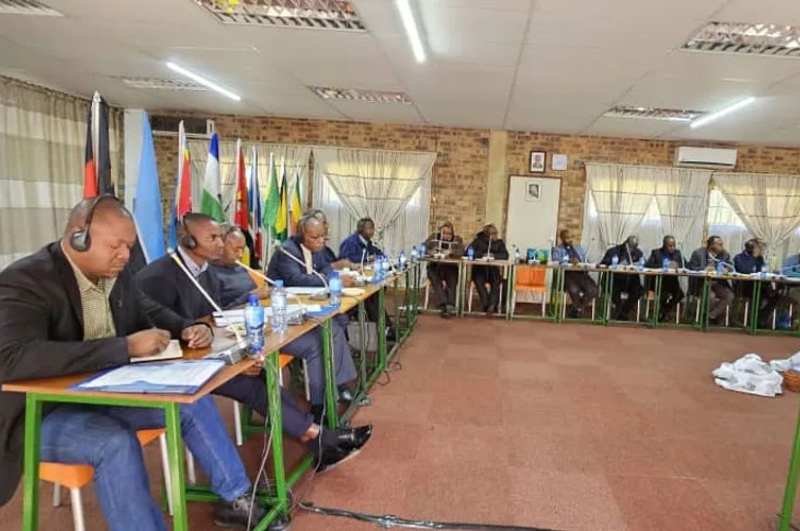
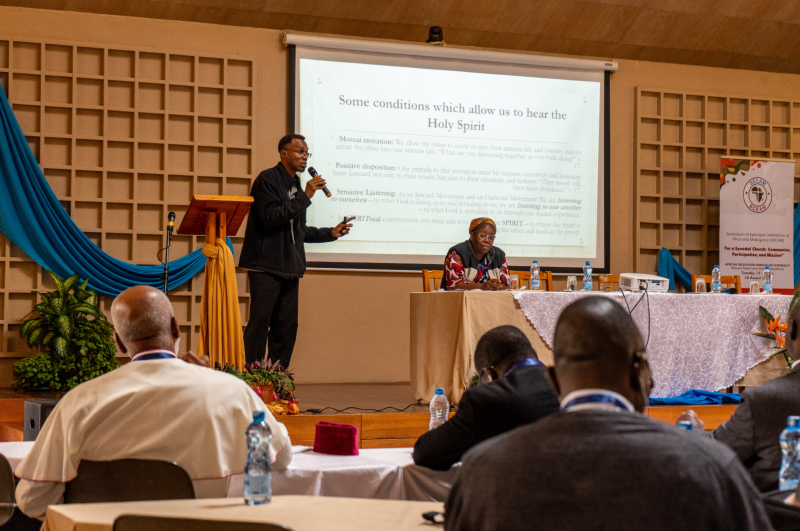
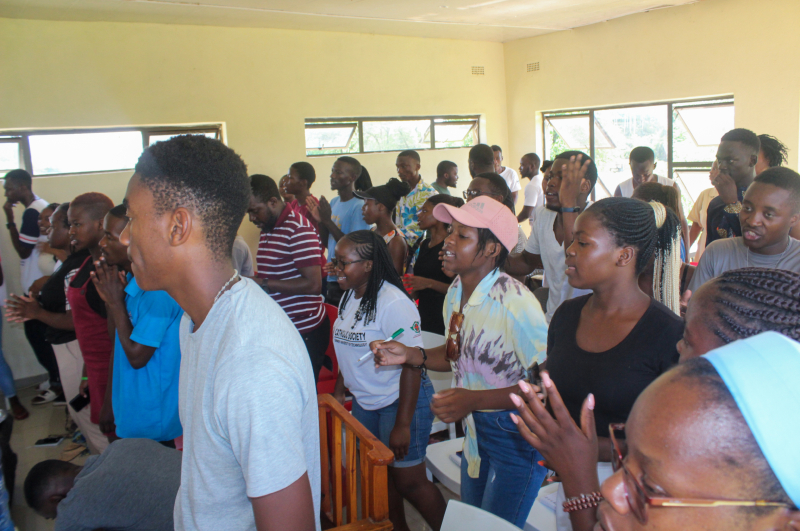

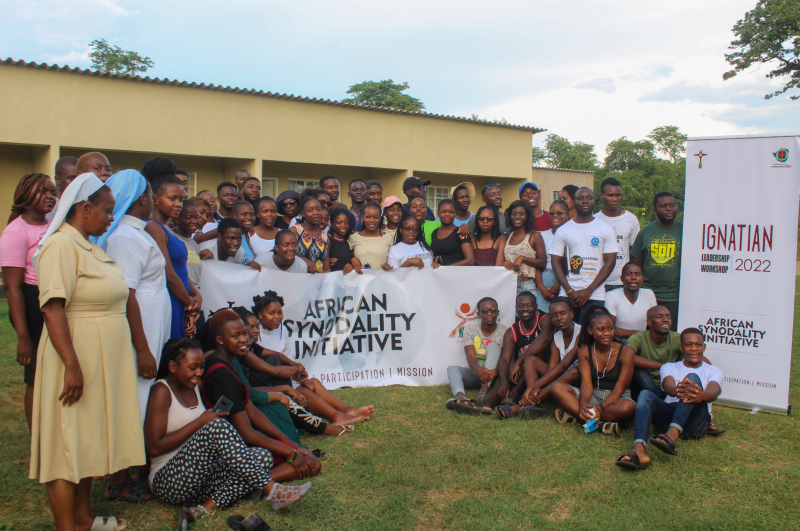
Select Payment Method
Pay by bank transfer
If you wish to make a donation by direct bank transfer please contact Fr Paul Hamill SJ treasurer@jesuits.africa. Fr Paul will get in touch with you about the best method of transfer for you and share account details with you. Donations can be one-off gifts or of any frequency; for example, you might wish to become a regular monthly donor of small amounts; that sort of reliable income can allow for very welcome forward planning in the development of the Society’s works in Africa and Madagascar.
Often it is easier to send a donation to an office within your own country and Fr Paul can advise on how that might be done. In some countries this kind of giving can also be recognised for tax relief and the necessary receipts will be issued.


